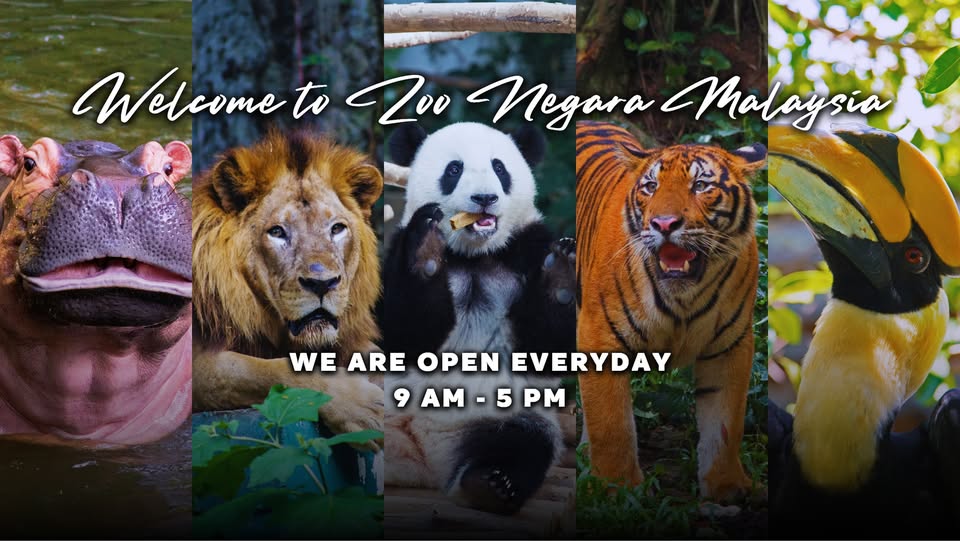
By Ahmad Abd Hamid
The next time you step into Zoo Negara in Ulu Kelang, Selangor, know this: you’re not just buying a ticket— you’re buying time, food, and survival for hundreds of animals.
The current ticket price for a Malaysian adult (13 years and above) is RM48, children (3 to 12 years) RM21 and RM23 for senior citizens (60 and above). Adult foreigners are charged RM93, and RM48 for children.
So, if the price feels steep, take heart. You’re helping to keep the zoo alive.
Why does it matter? Because running a zoo isn’t cheap. Salaries, maintenance, medical care — and most of all, feeding majestic creatures like tigers, giraffes, elephants, and lions — costs between RM1.3 million to RM1.5 million every month. That’s not counting vet bills.
During the COVID-19 lockdown, the zoo faced its darkest hour. Visitor income vanished. Savings dwindled to RM1 million. Thousands of animals still needed feeding. Staff still needed paying. What could Zoo Negara do?
It sold land.
A hilly plot next to the zoo, untouched since 1963, was reclassified for commercial use and sold to raise emergency funds. It was a desperate move — but a necessary one. The profits were placed in fixed deposits, just enough to cover basic operations post-pandemic.
But the sale sparked backlash. NGOs and nearby residents, especially in Taman Melawati, voiced concern. They feared development would disrupt green spaces, threaten forest reserves, and increase risks of landslides and flooding.
Zoo Negara’s deputy president, Datuk Rosly Lana, defended the decision. The land was unsuitable for zoo use, he said, and selling it was the only way to keep the animals fed and the zoo afloat.
Today, Zoo Negara is on firmer ground. Visitor numbers are rising, especially during school holidays. Government grants and public donations—especially through the animal adoption programme—are helping upgrade enclosures and improve facilities.
Still, the debate lingers. Was the land sale justified? Did it compromise environmental integrity? Perhaps. But in moments of crisis, choices are rarely perfect. The zoo council felt the pinch. The animals felt the hunger.
And all they ever ask for is their next meal — on time.